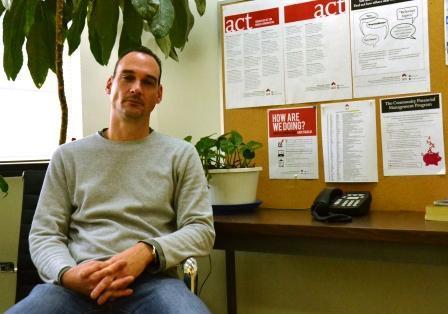The AIDS Committee of Toronto is ending two long-standing programs that serve HIV-positive women and Portuguese-speakers due to cuts in programming grants from the federal government.
Because of changes made to the Public Health Agency of Canada’s AIDS Community Action Plan program guidelines in December 2011, ACT was not eligible to apply for grants that it had been receiving for years to run programs previously offered by the groups VIVER and Voices of Positive Women (VOPW).
ACT had taken over VOPW’s annual wellness retreat and a project to implement a peer network for women living with HIV/AIDS across Ontario in 2010 after VOPW shut down and PHAC issued a call for organizations to take on its work. After two years of running the retreats, and extensive work to establish the beginnings of the peer network, ACT was told that it could no longer receive money to continue these programs.
ACT has also acted as a sponsor for VIVER’s ACAP grants since 2003. VIVER had run a community education project and case management project for Portuguese-speaking people living with HIV. Because VIVER did not have an active board in December 2011 when the new call for proposals was announced, a proposal could not be submitted and ACT was told it could not apply on VIVER’s behalf.
The new call for ACAP funding was much criticized for appearing only after a long delay, leaving uncertainty in how AIDS service organizations were going to receive funding in 2012. The call was sent out Dec 2, with only four weeks before a deadline that came over the Christmas holidays.
Service providers also complained about glitches in the application software and confusing language that seemed to require them to propose completely new programs.
And despite the fact that the total funding envelope remained constant at $12.1 million, the call for proposals was opened up to more organizations and the maximum individual grant amount was raised, meaning that there would be fewer successful applicants and some programs that had been funded in the past would not receive new funding.
Ultimately, agencies were told that they would be limited to applying for one operational grant and one project grant only. John Maxwell, ACT’s director of programs and services, says the agency was told specifically that it could not apply on behalf of VOPW and VIVER.
But a spokesperson for PHAC disputes that account.
“AIDS service organizations can also submit applications on behalf of satellite sites, sponsored agencies, sponsored programs or sponsored coalitions,” says Sylwia Gomes, senior media relations officer at PHAC. “The AIDS Committee of Toronto was informed they could sponsor two operational projects, namely, Voices of Positive Women (VIVER) and Positive Youth Outreach in addition to one operational and one time-limited project of their
own.”
The problem is that neither VOPW nor VIVER are still operational. So even though ACT is willing to take on the services they provided, ACT doesn’t qualify to continue receiving funding for them.
“We asked expressly about what do we do about this money that formerly belonged to Voices of Positive Women, and we were told, ‘You could have one project,’” Maxwell says.
ACT was already planning to apply for its own projects: Health Promotion for Gay Men and Women Living with HIV, and Positive Youth Outreach. Without funding for the other projects, ACT can’t afford to offer them anymore.
Gomes says that PHAC limits the number of applications per organization because it “anticipated a large number of interested applicants in Ontario” and they wanted to have as many successful applicant agencies as possible.
But that ignores the reality of the HIV epidemic on the ground, where 75 percent of Ontario’s cases are in Toronto, Maxwell says. Toronto organizations often must serve larger and more diverse clienteles than organizations in other regions.


 Why you can trust Xtra
Why you can trust Xtra


